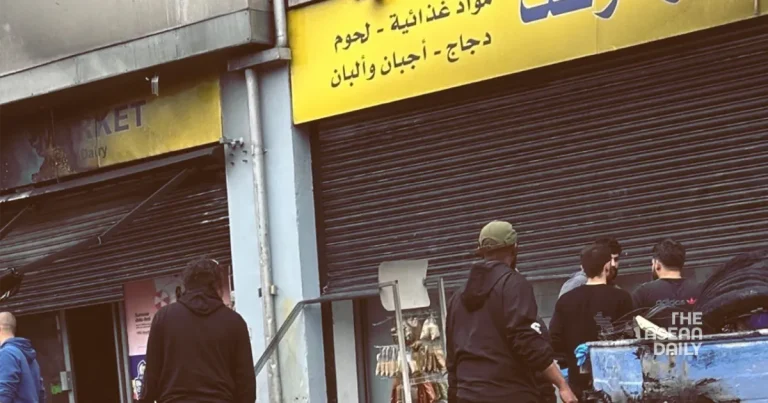6-8-2024 (LONDON) As anti-immigrant riots sweep across the United Kingdom, Singaporean in the UK find themselves navigating an increasingly tense atmosphere. The unrest, which erupted following a tragic knife attack in Southport, has left many feeling vulnerable and anxious about their safety.
Shereen Williams, a 42-year-old Singaporean Muslim residing in Wales, expressed her heightened sense of alert. “When you are a visible minority living in a country where some people out there have no qualms in spitting on you or hitting you, I live my life on high alert,” she said. Williams, who serves as the chief executive of the Democracy and Boundary Commission Cymru, revealed that even mundane activities like going out for lunch or walking on the pavement have become nerve-wracking experiences.
The riots, which began on 30 July, were fuelled by false rumours circulating online that the Southport attack suspect was a Muslim asylum seeker. Despite the suspect later being identified as Axel Rudakubana, a 17-year-old born in Wales to Rwandan parents, the unrest has continued to spread, with far-right rallies and skirmishes reported in multiple cities across the UK and Northern Ireland.
If this doesn’t bring tears to your eyes, I don’t know what will.
Catholics and Prots, shoulder-to-shoulder. Never seen anything quite like it.#belfast #stoke #hull #sunderland #southport #RIOT #protest pic.twitter.com/kNEBjwA3te
— Greetings From Paul (@GreetingsPaulYT) August 3, 2024
For Williams, who has lived in Wales for 19 years, the current situation is painfully familiar. She recounted past incidents of xenophobia-driven aggression, including being spat on and struck on the head by strangers. As a former lead officer for community cohesion and counter-extremism in Newport, she understands the destructive impact such sentiments can have on community ties.
“I didn’t think it would be to this extent, that hotels are being set on fire, libraries burnt down,” Williams commented, describing the current riots as the worst she has witnessed in her time in the UK. She attributed part of the problem to rampant speculation on social media and the role of politicians in instigating responses.
In response to the escalating situation, the Singapore High Commission in London issued a statement on 4 August, urging Singaporeans in the UK to remain vigilant and avoid affected areas where possible.
Not all Singaporeans in the UK are feeling equally threatened, however. Kimberly Ho, a 30-year-old who moved to London 18 months ago, reported that life in the capital remains largely unaffected. While she and her husband, both ethnic Chinese, have fleeting concerns about potentially being targeted by far-right groups, Ho feels that London’s diversity provides a measure of security.
“In London, almost everyone is a minority,” Ho explained. Nevertheless, she is keeping a close eye on developments, ready to adjust her plans for an upcoming countryside trip if necessary.
As the unrest continues, British Prime Minister Keir Starmer has promised swift action against violent protesters targeting Muslim communities. Meanwhile, community groups across the UK are organising counter-protests and rallying against racism, providing a glimmer of hope for those caught in the crossfire of these tumultuous events.
For Singaporeans like Williams, these displays of unity offer strength in the face of adversity. “I’m not going to stop because someone has strong feelings about the way I look, or my immigration status,” she affirmed, demonstrating the resilience that many expatriates are drawing upon during these challenging times.




